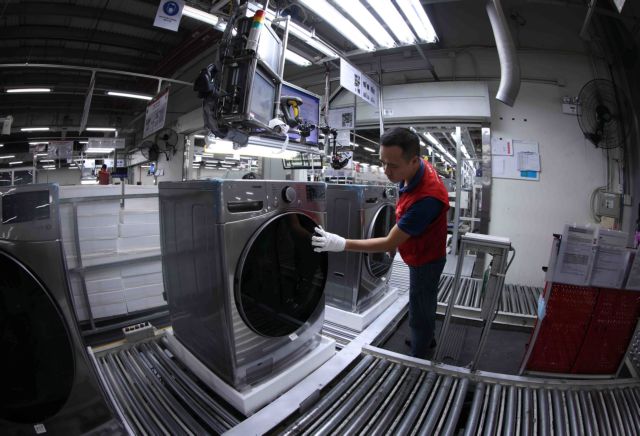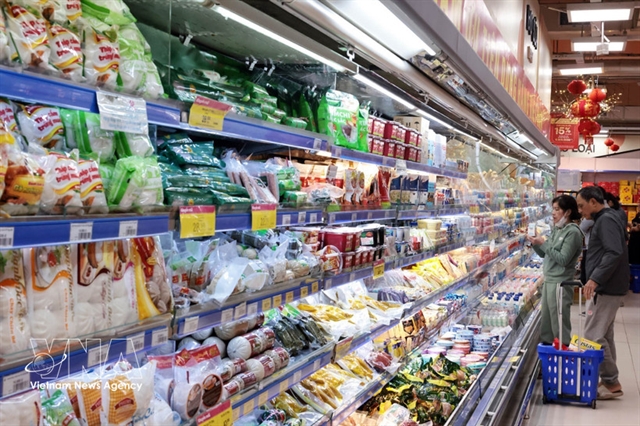 Economy
Economy

 |
| Washing machine production at a plant of LG Electronics Việt Nam in Hải Phòng. The Factory Network Business Conference is going to be held at the Vietnam Exposition Centre (VEC) in Hà Nội. — VNA/VNS Photo Vũ Sinh |
HÀ NỘI — Việt Nam’s manufacturing industry is now at a pivotal stage, with international trade emerging not only as a channel for expanding markets but also as a powerful driver for enterprises to transform and upgrade their capacity.
Following the “80-year Journey of Independence – Freedom – Happiness” exhibition, the business community joined the Factory Network Business Conference (FBC ASEAN 2025), held at the Vietnam Exposition Centre (VEC) in Hà Nội last week.
The event brought together some 23,000 manufacturing enterprises from across the world, including Germany, Italy, Japan and Thailand. It showcased scientific achievements, innovations, and the latest machinery and equipment in mechanical engineering, automation, electronics and precision engineering. At the same time, it attracted major buyers such as Mitsubishi Electric, Panasonic, Samsung, Toto, Fujifilm and Tiger, who presented technologies and products while seeking long-term suppliers and partners.
According to Phan Đăng Tuất, Chairman of the Vietnam Association of Supporting Industries, the biggest challenge to the country’s manufacturing sector is market access as firms remain passive in areas such as logistics and policy in the face of global uncertainties and supply chain disruptions.
He suggested the Government prioritise support policies such as establishing testing and certification centres to help businesses gain quality certificates to engage in global markets, and creating start-up hubs with shared facilities for trial product and service development, noting that these could operate on a fee-paying basis rather than being offered free of charge.
He noted that such mechanisms were still absent in Việt Nam, which put businesses at a disadvantage.
Echoing these concerns, Đặng Thanh Bình, Director of TCI Industry JSC – a private company specialising in precision machining and automation with nearly 20 years’ experience, said most Vietnamese businesses were small firms which often faced barriers in accessing state support, particularly in loans, tax incentives, and compliance with technical standards.
Despite this, TCI had drawn up flexible strategies, seeking to expand beyond Japanese and FDI clients to new partners in Europe and the US while increasing the export of complete automation solutions. Participation in FBC ASEAN 2025, he said, was a step to connect with new customers.
Ogawa Tsuyoshi, General Director of Japan’s TKR Manufacturing Vietnam, which has operated in the country since 2018 with over 500 employees, said the company looked forward to forging links with global assemblers and suppliers through the event.
He noted that the conference offered companies a chance to seek potential partners and cooperation opportunities to develop products and services that would be difficult to be supplied by a single company, adding that Việt Nam’s manufacturing sector still boasted significant growth potential within ASEAN.
Similarly, Hamada Shogo, General Director of Daiwa Vietnam, observed that while the country’s strong export performance had been well maintained, greater emphasis should be placed on product research and development to strengthen local firms’ innovation capacity.
He noted that Vietnamese manufacturers were already capable of meeting the stringent requirements of partners in Europe, the US and Japan, and with continued focus on quality, the country’s supporting industries would be well positioned for further growth.
International trade would no longer merely be an exchange of goods but a strategic lever enabling Vietnamese enterprises to enhance capacity, secure partnerships, and expand globally. — VNS




